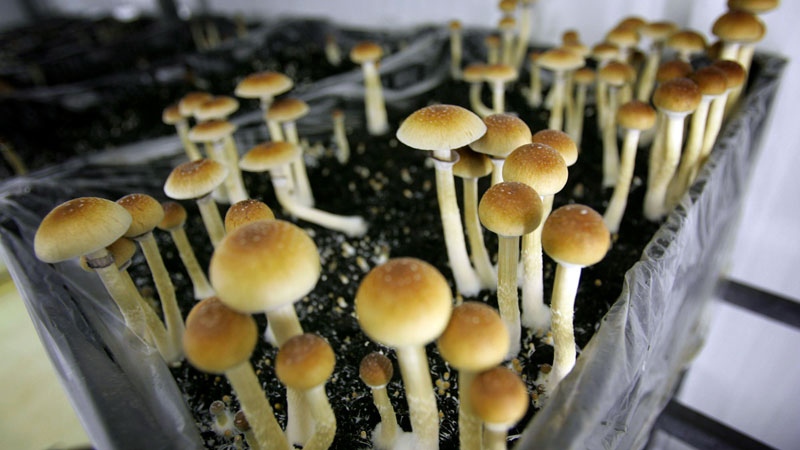In southern B.C, there's a new 20,000 square foot production facility where one particular product is generating a lot of buzz.
Psilocybin — better known as magic mushrooms — are grown here legally in a high-tech lab, where cultivators are hoping to contribute to medical research that suggests these mushrooms could have huge medical benefits.
“There’s lots of clinical studies happening right now showing the potential of these mushrooms,” Todd Henderson told CTV National News.
Henderson is head cultivator for a company called Optimi Health. It's one of a handful of Canadian businesses now federally approved to produce, manufacture and export psychedelic mushrooms.
Although there’s only a few of these businesses right now, more and more companies are racing to position themselves as certified suppliers of psilocybin.
The push comes as scientists are increasingly exploring its therapeutic benefits, including for treatment of depression, substance use and end-of-life distress.
“We’re going to be able to provide that safe supply, so the researchers can actually then study deeper to see well, let’s see where this goes,” Bill Ciprick, CEO of Optimi Health, told CTV National News.
One study published in February found that psilocybin therapy was associated with relief of symptoms in adults suffering from major depressive disorder for up to a year.
Right now, there are no approved therapeutic products that contain psilocybin, in Canada or elsewhere, according to Health Canada. But in January 2022, Health Canada adjusted their Special Access Program (SAP) to allow physicians to request psilocybin for use in psychotherapy or with other treatment plans, making it easier for doctors to access the restricted drug.
And in April, the first patients in Canada were able to receive psilocybin treatment through SAP for end-of-life anxiety.
Thomas Hartle, one of those patients who received access due to his terminal colon cancer diagnosis, told CTV News in May that having access to this treatment made a huge difference in his quality of life.
"The improvement in my mental health is so night and day that it would be difficult to say all of the things that it does for me," he said.
"I still have cancer. I still have difficulty with what it physically does, but there are days when I don't even think about it. What would you do to have a day where you just feel normal?”
These consciousness-altering substances are used in a controlled, clinical setting as part of psychotherapy.
Psilocybin, which is the active ingredient in magic mushrooms, enters the body through the same receptors as serotonin, a chemical that acts as a neurotransmitter, carrying messages through the body and acts as a mood stabilizer. People with depression often have low levels of serotonin, and psychedelics such as psilocybin have been found to cause an increase in connectivity of the brain, allowing those messages to be sent more readily than before.
Some studies have shown that one or two doses of psilocybin in a therapeutic setting can make significant, long-lasting differences for those with treatment-resistant depressive disorders.
Ciprick said that magic mushrooms provide more options for doctors looking at how to treat a patient.
“What psilocybin offers is a different opportunity to physicians,” he said. “They need lots of tools in their toolbox, and this gives them another one.”
While Optimi also grows non-regulated mushrooms, its main focus is growing the psychedelic variety for medical use and research.
“Anyone who is looking to develop a medicine that is going to help people — that is who we are growing for,” Henderson said.
The company already has an agreement with the IMPACT clinical trial accelerator program within the University of Calgary to clinically test their psilocybin products and the potential health benefits.
And in late June, the company announced that they had partnered with a Calgary-based clinic group to supply them with magic mushrooms for psychedelic-assisted therapies, provided the patients are approved through SAP.
About 2,000 kilograms of dried psilocybin can be produced every month.
While the company is currently working with Canadian researchers, the goal is to eventually share their magic mushrooms globally.








































